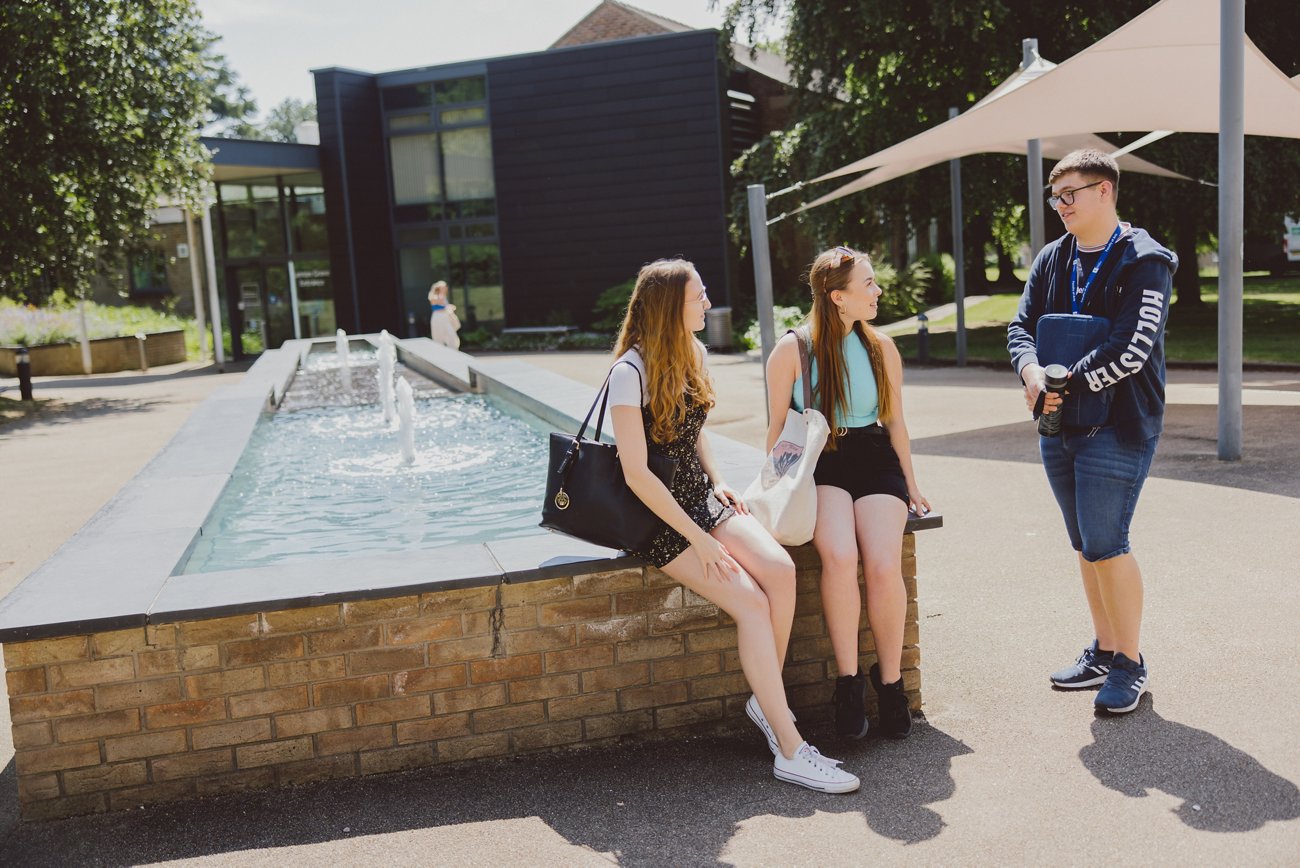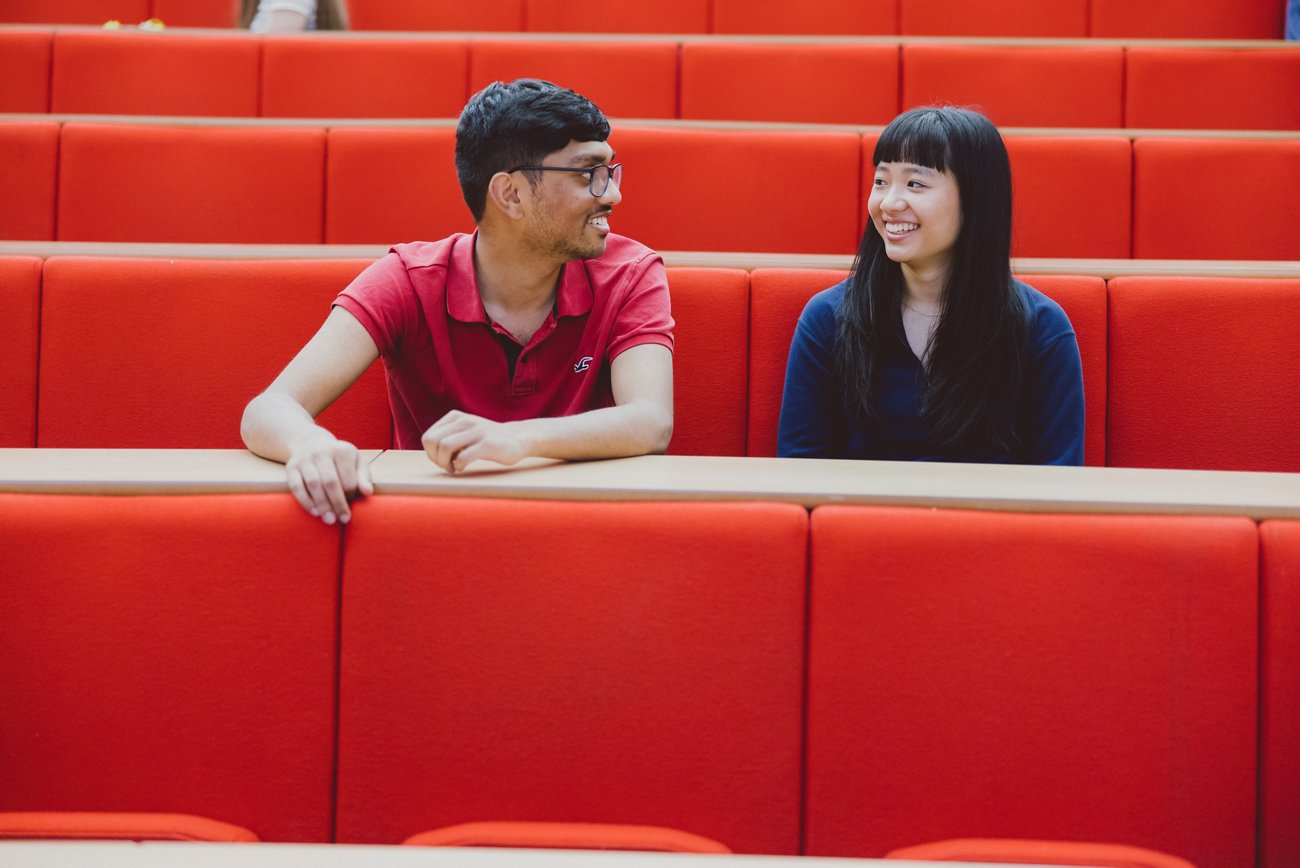

Daniel
What was it like studying a subject you’d never done before?

The skills you learnt at school, no matter the subject, can always be applied to your degree. I was constantly supported, especially when studying modules that were new to me.
It is really odd coming into a degree knowing it's not something you’ve studied before. History, I am very used to but even then, I’m learning about periods and areas of history that I haven’t studied before. American Studies on the other hand, I had never heard of it was actually my A-level Politics teacher that recommended it to me, he having studied it at Nottingham.
Because I do a joint honours degree, I do half of the American Studies modules, specifically the American history and culture modules, which partially delve into the American Politics I studied at A level: there’s surprisingly a lot of overlap!
What do you enjoy most about your degree?
I really like being a joint honours student because it gives me variety, with different people and different classes. It’s nice having the ability to mix with more people and study a wider range of topics. You get the opportunity to study relevant topics in conjunction with history for example, I have a seminar on Hamilton the musical and I just love that that’s even possible.
How has it been socially as a student in Nottingham?
I love the town itself. The campus is scenic, we have a great nightlife, there is something for everyone to enjoy. But also, there’s many ways of socialising in general, with societies, sports teams etc. - for instance, I am a part of the Taylor Swift society, as well as involved with Snowsports.
Though it’s a larger city with a sizeable campus, it still feels quite connected. There’s almost an interactive web, everyone knows someone who knows someone, it feels like a close-knit community.
How have you approached a work-life balance?

My advice would be to do what’s best for you and try not to sacrifice your recreational time for your studies. You just have to find a balance. Sometimes you’ll have to prioritise your work, but they’ll always be opportunities where you’ll have the availability to go and have fun.
I have a few part-time jobs that are slightly more flexible. I work as a content creator for the university, as well as tutoring and working at a supermarket one day a week. So, I’ve got multiple streams of income that still allows me time to study.
In terms of my academic work, I allocate times within the week. I structure my studying time to suit me best, I know for seminars I like to do my reading the day before; so, it’s still fresh in my mind the following day. This wouldn’t work for me for essays, so for those I give myself plenty of time to do them, especially as sometimes they can all be due in the same week.
I still allow time to hang out with my friends and if there is something I wanted to go to, I adjust my timetable to make time for it.
Did you have any apprehensions about studying American Studies and History?
I think I worried about where it will leave me at the end of my degree. I already have an idea of what I want to do - broadcast journalism, and I was worried that American Studies and History could be viewed as a rogue degree. But I came to the realisation that it could actually make me stand out. I used to wonder 'what happens if I change my mind?' but there’s lots of options with master’s if I decide to go into something different.
I can go into great things with this degree, it’s full of transferable skills, which employers look for. So, while initially I was somewhat worried about that, I feel confident in the skills I learn, will make me standout, and make me employable.
Is there a reason you chose your degree over one that is more stereotypically aligned with your future career ambitions?

Nowadays there’s always multiple ways of getting into a sector, rather than just the traditional route – I have options at the postgraduate stage!
I considered many different degrees, but bottom line is I love history. I chose a degree I knew I would enjoy over what would assumedly be more fitting. I knew I wanted to go to America as well, so I factored that into my decision.
Do you see a difference between a joint honours and single honours degree?
There is a difference, but I wouldn’t necessarily say in workload. But more in the amount you have to consider, for example, for American Studies and History there are two different referencing styles. I’m constantly mindful about following the right one, whereas I think someone who does a single honours doesn’t have to be as much. So, it’s just learning what different departments and different markers could want.
What are your next steps after graduation?
I would love to go through a journalism training scheme at the BBC. It’s very competitive so if I don’t make it the first time around, I’ll take a gap year and try reapplying again. I’m really open and flexible; I have been considering law as well as an option to convert to.
What does success mean to you?

Success really would just be doing well for myself, being happy and healthy, feeling valued – it's dependent on where you are in life and your circumstances at those different stages.
Success is something qualitative, and not something you can measure necessarily with numbers – though in grades it can be indicative. For me, success it not just achieving, but putting in the hard work and it paying off. There is no better feeling than opening the mark of an essay you tried really hard on and getting positive feedback and a great grade! However, success in the future would be getting into a career I'd like, where I feel comfortable, and I am respected by my institution – getting high up in the world of journalism is very difficult, so I'm aware if I don't, that's okay. I've got other options.
If you are struggling with anything, tutors are more than happy to have you book in and come and see them, which I've done for a few of my essays, where I've not been sure or wanted to go over a plan with them. So, I do feel supported. You can choose the area of the discipline that you like, and because of that, you can support yourself more in a way, but also the support is there for you to go and get it if you need it. It's not like explicitly given, but through the learning style we use and through those office hours you have the support that if you need it, which is good.










